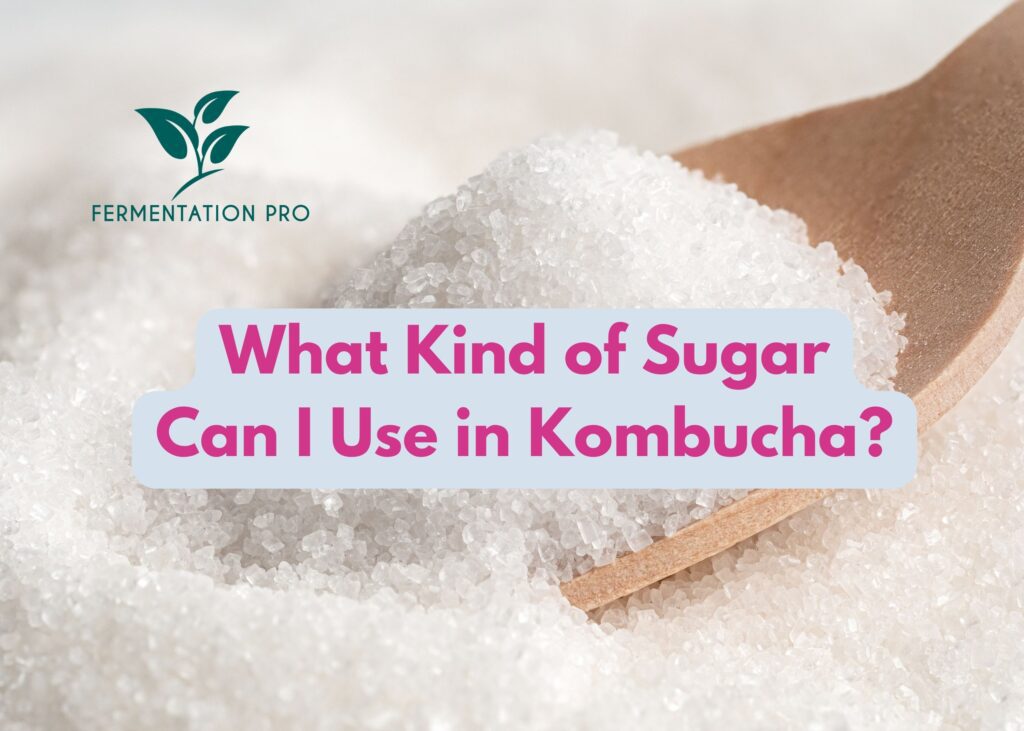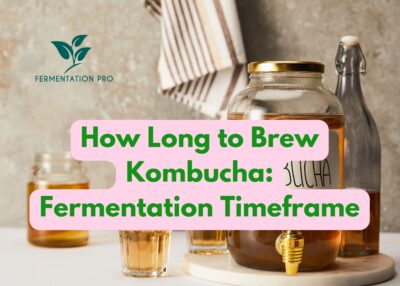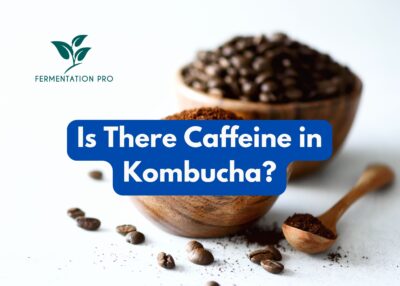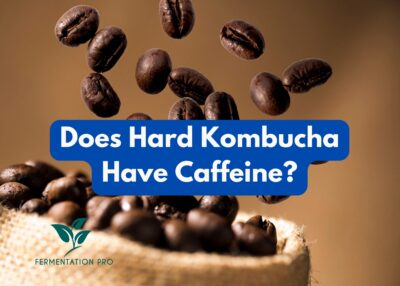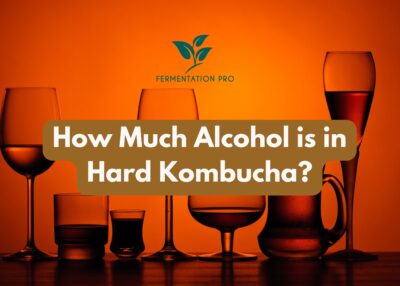There’s no secret that the amount of sugar you use in your Kombucha brew is important, but did you know that the kind of sugar also matters? In brewing Kombucha, sugar serves as the food for your Kombucha culture. Usually, 1 cup of sugar is used for every 1 gallon of Kombucha and is enough to feed the colony of yeast and bacteria. While you have to pay attention to this amount, it is equally important to consider the kind of sugar you use. After all, this serves as the fuel of your Kombucha culture, and feeding them with not suitable food can affect the brewing progress and the overall quality of your brew. If you’re now asking, what kind of sugar can I use in Kombucha? Ask no more because here is the answer.
Cane sugar or more known as white sugar remains to be the best type of sugar used for brewing Kombucha. It is also the most common sugar to use as it is cost-effective and easy to find in many retailers and online stores. Some brewers also like to use organic cane juice crystals which are basically unbleached sugar with minerals. In addition to cane sugar and cane juice crystals, you may also use molasses, coconut palm sugar, maple syrup, honey, and agave syrup.
Table of Contents
Can You Use Any Sugar For Kombucha?
The short answer is no. As we have mentioned above, the kind of sugar you use matters when brewing Kombucha. Using sugar that is not fermentable and not suitable for Kombucha brewing can cause your Kombucha culture to starve, sleep, and completely stop working.
Not all sugars can be easily broken down by the Kombucha culture. In addition, some sugars contain added ingredients that can harm the culture over time. If you use just any sugar in your Kombucha brew, chances are you will produce inconsistent batches of Kombucha or you will just have a sweet tea mixture that didn’t ferment at all. For this reason, we suggest using only the suitable sugars for your Kombucha. Below, we’ve listed down the sugars that you can use for brewing Kombucha and the sugars that you should avoid.
Best Sugars For Brewing Kombucha
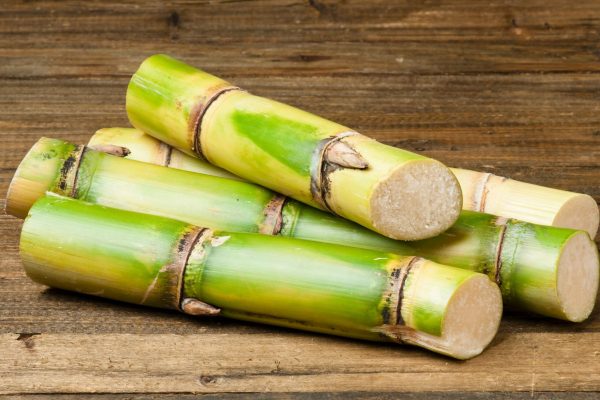
- Cane sugar
Cane sugar is granulated white sugar made of sugarcane. It is a widely available source of sucrose which serves as the food for the yeast. Compared to other sugars, cane sugar is relatively cheap and easy to find. However, before you rush to the nearest grocery store to buy cane sugar, take note to only buy one which has a label saying that it’s made from sugar cane. This is because some white sugar in the market is made with Genetically Modified Organisms or GMO beet sugar. Using this sugar can throw your culture out of balance and affect your brew.
Aside from granulated white sugar, there are other types of cane sugar that you can use to brew Kombucha. These types of sugar include the following.
- Turbinado
- Demerara
- Muscovado
- Piloncillo
- Jaggery
- Sucanat
Healthier Choices for Cane Sugar
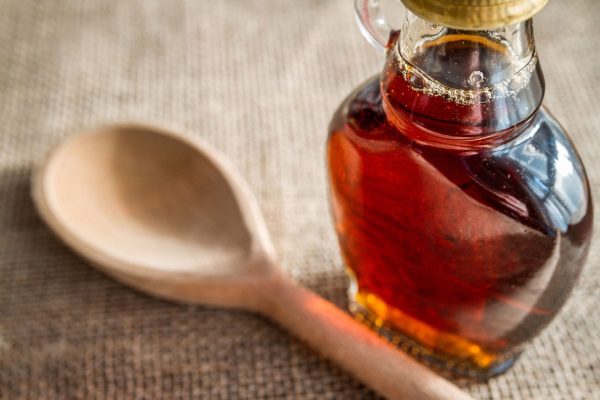
When it comes to nutritional value, these types of sugar are healthier than white sugar because they contain higher mineral content and lesser chemicals because they didn’t undergo bleaching. However, according to Kombuchakamp.com, the higher mineral content of these types of sugar can cause the Kombucha ferment to become sour faster. Hence, if you are not a fan of sour Kombucha, you might want to stick to using white sugar.
- Organic Cane Juice Crystals
Also referred to as organic evaporated cane juice, organic cane juice crystals are a type of ”first crystallization” sugar, meaning that they are only crystalized once. For this reason, organic cane juice crystals are able to retain their molasses and mineral content. Like other cane sugar with mineral content, organic cane juice crystals can also turn Kombucha sour quickly. Nevertheless, it remains to be a healthy and good source of sucrose for your Kombucha culture.
- Molasses
Molasses is a healthy by-product of sugar cane processing that is filled with iron, calcium, potassium, and magnesium. Due to its healthy components, brewing Kombucha with it results in a Kombucha with added mineral content. However, not everyone agrees with using molasses in brewing Kombucha as it may slow down the fermentation process and produce inconsistent batches of Kombucha. Hence, if you plan to use molasses for your Kombucha brew, we suggest using it along with other sugars and tasting your brew consistently.
- Coconut Palm Sugar
Coconut palm sugar or simply coconut sugar is a type of sugar made with coconut palm sap. Like other types of cane sugar, coconut palm sugar also has traces of minerals making it a relatively healthy alternative to white sugar. However, it may cause the Kombucha to turn sour more quicker so always remember to monitor your brew.
Alternative for White Sugar
- Maple syrup
Our favorite condiment for pancakes is not only delicious but also suitable for feeding Kombucha culture. Maple syrup is made with the sap of the sugar maple tree. It contains minerals and nutrients like zinc and manganese that can give Kombucha a boost in its health benefits. However, take note to only use pure maple syrup in Kombucha brewing as some varieties of maple syrup may contain added ingredients that may interfere with the fermentation process. To use maple syrup in Kombucha, simply replace 1 cup of cane sugar with ½ cup of maple syrup.
- Honey
Yes, you’ve read that right. ¾ cup of honey can serve as a good source of food for the yeasts in 1 gallon of Kombucha mixture. In addition to that, it contains various nutrients that can make your Kombucha extra healthy. Just a reminder though, do not use raw honey as it contains some bacteria that can interact with your culture.
- Agave syrup
Agave syrup is a sweetener from the agave plant. It contains essential food for the Kombucha culture but may give Kombucha a more sour savor. Hence, it is better to use less of this sweetener, about ¼ to ½ cup of agave syrup only in every 1 gallon of Kombucha. You may also use it along with other sugars to give your Kombucha a sufficient amount of sugar to feed on.
Sugars To Avoid Using When Brewing Kombucha
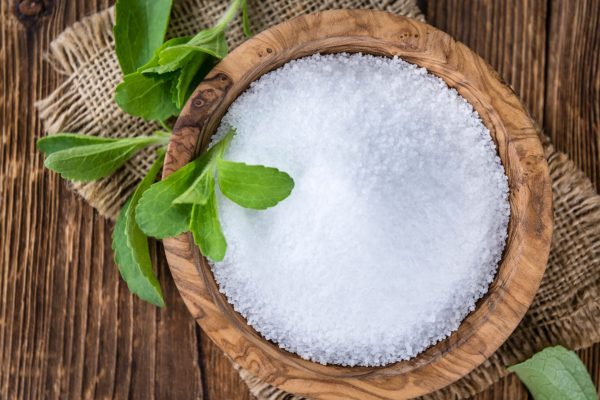
- Sugar substitutes
Any low-sugar or sugar substitutes are not suitable for brewing Kombucha. These sugars are not suitable for fermentation and do not offer any food source to the yeast. Some examples of sugar substitutes that you have to avoid are:
- Stevia
- Xylitol
- Aspartame
- Erythritol
Can You Use Raw Sugar Instead Of White Sugar For Kombucha?
The straight answer is yes. Raw sugar is a popular choice among many brewers who like to experiment with their Kombucha’s taste. However, we do not recommend using it as it is less refined and can give your SCOBY a hard time in fermenting your Kombucha. In addition, their mineral content makes the taste of Kombucha turn sour faster.
If you are new to brewing Kombucha, we always suggest sticking with white sugar as it often produces consistent results in every batch.
Can I Use Brown Sugar Instead Of White Sugar For Kombucha?
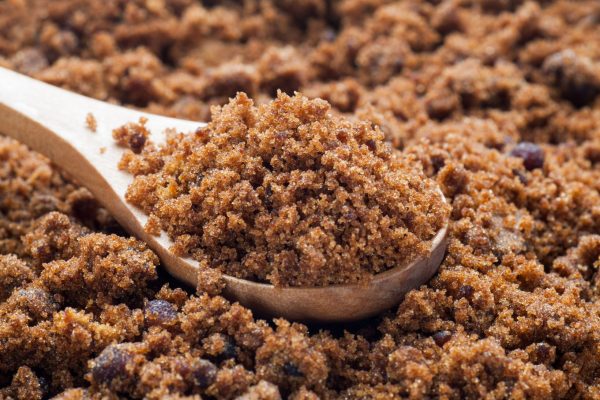
According to the brew project, you can use brown sugar instead of white sugar for Kombucha. Here’s why.
Brown sugar is made by combining white sugar and molasses. As mentioned above, white sugar and molasses are both suitable for fermenting Kombucha and contain the necessary food for the Kombucha culture. However, using brown sugar for Kombucha may change its flavor and produce inconsistent batches. Hence, we suggest monitoring your Kombucha brew consistently if you are just starting to use brown sugar for fermentation.
Can I Use Powdered Sugar To Make Kombucha?
While some brewers disagree, the truth is you can use powdered sugar for Kombucha however, this doesn’t always guarantee brewing success. Powdered sugar or confectioner’s sugar is white sugar turned to fine powder mixed with cornstarch. It is commonly used in making cakes, icings, cookies, and other baked goods.
Like regular white sugar, powdered sugar also contains the same carbohydrates and components and can be dissolved in the Kombucha. Hence, it is a suitable food for yeast. However, according to thebrewsite.com, confectioner’s sugar is not only about 97% fermentable. This may slow down the fermentation process of Kombucha.
Can I Use Organic Sugar For Kombucha?
The answer is yes. Organic sugar is a good sugar option for making Kombucha. From its name, organic sugar is sugar made from organically grown sugarcane. Compared to other types of sugar, organic sugar is naturally processed so it is able to retain some of its natural nutrients making Kombucha healthier. However, its natural nutrients may affect the taste of your finished Kombucha. Hence, if you are using organic sugar for the first time, remember to always taste your brew during fermentation to prevent it from turning too sour.
Like other types of sugar, you can buy organic sugar from different local stores and online shops. However, it can cost up to five times more than regular white sugar. So, if you are a brewer on a budget, you may want to use cane sugar first.

